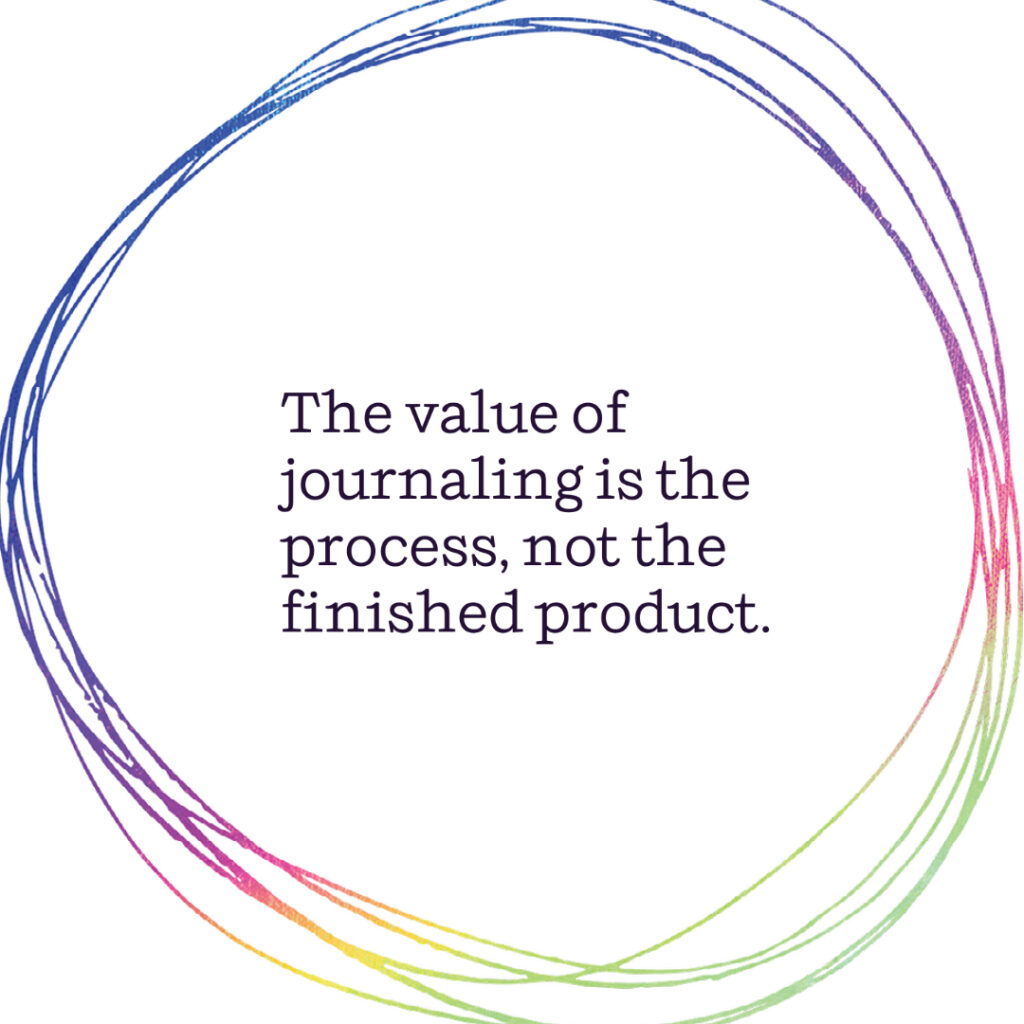When thoughts and feelings demand to be heard, unpacked, and nurtured, my go to is a hot date with my journal.
Like therapy, writing is most helpful when habitual and not just a fury we unleash in crisis mode (although there is great power in that release, too). Writing is an instrument of healing, and healing can occur faster when we tend to it regularly rather than in fits and starts.
By “writing” I don’t mean books or scholarly articles or anthology-ready poems, but rather journal entries, lists— anything that takes the words and feelings out of your head and makes some kind of sense of them on the page.
Why is the act of writing so therapeutic? Simple: it gets the two sides of our brains working in concert.
“To tell a story that makes sense, the left brain must put things in order, using words and logic. The right brain contributes the bodily sensations, raw emotions, and personal memories, so we can see the whole picture and communicate our experience,” Daniel Siegel wrote in The Whole-Brain Child. “This is the scientific explanation behind why journaling and talking about a difficult event can be so powerful in helping us heal. In fact, research shows that merely assigning a name or label to what we feel literally calms down the activity of the emotional circuitry of the right hemisphere.”
The act of attaching language to emotions—which is what we do when we translate that nebulous, knotted, writhing jumble of perceptions gyrating in the mind into words of substance and nuance—allows us to begin to process so much that was previously either unexamined, misinterpreted, or unexpressed.
While we might hope to sit down at the blank page and channel some gorgeous, flowing, poetic word garland, more often than not what is released to the paper reflects that jumble that we’re still making sense of. (“I write entirely to find out what I’m thinking, what I’m looking at, what I see and what it means. What I want and what I fear,” Joan Didion wrote.)
The value of journaling is the process, not the finished product. It does not have to be elegant or lucid and is for your eyes only.
Julia Cameron, of “morning pages” fame, wrote in The Artist’s Way that the point of a private, unedited release to the page is to “sort through the differences between our real feelings, which are often secret, and our official feelings, those on the record for public display.” An undignified metaphor, perhaps, but I think of it as a mental dump truck backing up—beep, beep, beep!—to release the load of crap we carry around. And, once empty, something fresh can arise in its place.
In her most excellent book How the Light Gets In: Writing as a Spiritual Practice, Pat Schneider, a Missouri girl like me, wrote: “To write about what is painful is to begin the work of healing.” There are, however, days when the best anyone can come up with is a profane yell. (Personally, I have begun many a session with my favorite word, which may or may not start with an F, repeated in various forms, unparalleled in its ability to convey my deepest thoughts. You are welcome to borrow this technique anytime. Talk about therapeutic!)
What I try to give to the page as I work through a question, or set down a heavy hurt, or dream about what the future might hold for my children and their children, is the truth as I know it. Objectivity is beyond reason in the context of discharge; it all flows through the filter of my understanding before landing on the ground. But then, once my eyes can process in black and white what my heart could only see in searing technicolor, there is something to work with. First the release, then the effort to make any sense from it.
Kind of like therapy, eh?






